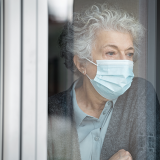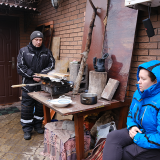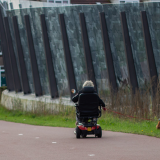
Životní podmínky a kvalita života
Životní podmínky a kvalita života tvoří jednu ze šesti hlavních činností pracovního programu nadace Eurofound na období 2021–2024. Eurofound bude i nadále mapovat a analyzovat klíčové aspekty související se zlepšováním životních podmínek lidí v Evropě, včetně informací o tom, jak lidé vnímají kvalitu života a společnosti. Vzhledem k tomu, že pandemie COVID-19 a následující ekonomická krize hluboce ovlivnily životy lidí, nadace Eurofound bude dále zkoumat dopad krize na občany EU v různých obdobích života.
Výzkum agentury Eurofound v období 2021–2024 poskytne důležité poznatky o výzvách a vyhlídkách v oblasti životních podmínek a kvality života v EU a o úloze, kterou plní různé iniciativy s cílem snížit sociální problémy jednotlivých skupin obyvatel. Zvláštní pozornost bude věnována dopadům na starší lidi a potřebu péče, na mladé lidi a jejich sociální začlenění a sociální mobilitu, jakož i nejrůznějším důsledkům krize pro muže a ženy .
Při řešení krize COVID-19 hrály významnou úlohu veřejné služby . Ty čelily značným výzvám a agentura Eurofound je bude posuzovat podrobněji – zaměří se na problematiku kvality, dostupnosti a cenové dostupnosti. Z předchozích poznatků vyplynulo, že krize měla neúměrný dopad na určité skupiny v závislosti na věku, pečovatelských povinnostech a rovnováze mezi pracovním a soukromým životem .
Eurofound se ve spolupráci s Evropským institutem pro rovnost žen a mužů (EIGE) chystá zkoumat mnohostranné genderové rozdíly na základě toho, jaký dopad má krize COVID-19 na muže a ženy, co se týče zaměstnanosti, materiálních životních podmínek a duševní pohody, s cílem identifikovat odlišnosti a posoudit jejich vliv na genderové rozdíly.
- Infografika: Životní podmínky a kvalita života v EU
„Při budování důvěry ve stávající evropské instituce byla klíčová kvalita veřejných služeb. Ta bude zásadní i pro překonání stávajících a budoucích výzev. Kvalitní služby představují prostor pro inovace, především při přechodu na digitální ekologičtější služby a při přípravě na budoucí rizika, například pandemie.“
Tadas Leončikas, vedoucí manažer výzkumu, oddělení sociální politiky



























